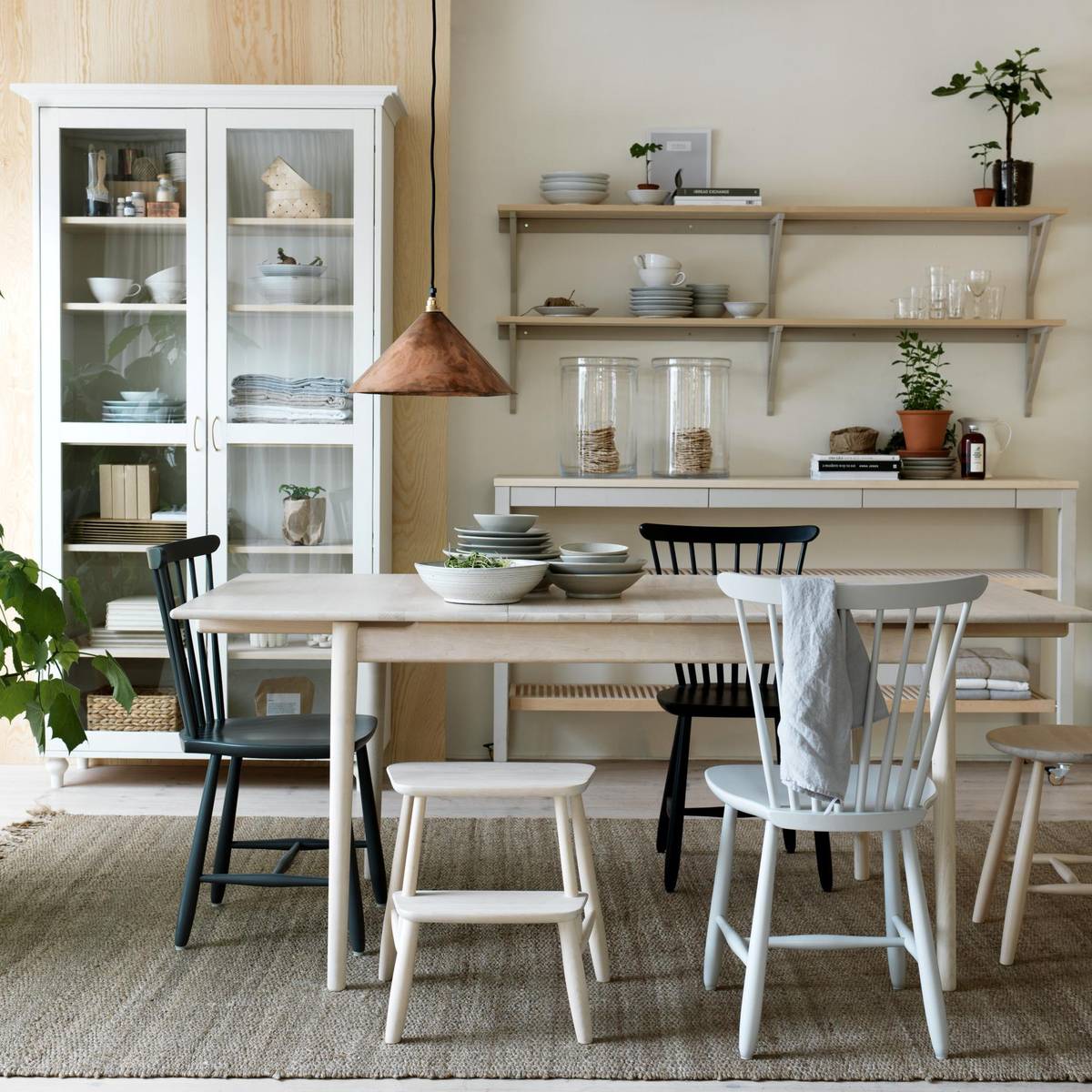
Swedish textile design – a perfect weave
Textile design has a strong heritage in Sweden and a distinctive yet diverse aesthetic. Here’s an introduction to this artisanal world and the most important names within it.

Textile design has a strong heritage in Sweden and a distinctive yet diverse aesthetic. Here’s an introduction to this artisanal world and the most important names within it.
Swedish design is world-renowned and there are many strands to it – textile design being a key part. Adding nuance and texture to Sweden’s functionalist homes, it often features colour and print – be it richly decorative or more graphic in style. Svenskt Tenn exemplifies the ornate school of design. The designer Josef Frank drew on the organic shapes and colours of nature when developing prints for Svenskt Tenn. This stylistic expression was dubbed “Swedish Modern” following the company’s international breakthrough at the 1937 World Exposition in Paris.
Sweden’s crafts heritage and sustainable mindset have shaped the country’s textile design identity and continue to bring it forward. With a focus on small-scale, local production, the eminent textile purveyors listed below, adhere to artisan processes established decades or even centuries ago, fusing these with new sustainable technologies.
Sets a table with textiles from Frösö Handtryck . They makes hand printed fabrics and sew products at the factory at Frösön since 1946.
Photo: Tina Stafrén/Frösö Handtryck

Photo: Tina Stafrén/Frösö Handtryck

Photo: Tina Stafrén/Frösö Handtryck

Photo: Jacob Bruce

Photo: Jacob Bruce
Founded in 1946, every metre of Frösö Handtryck fabric is printed by hand in the company’s factory on Frösön in the province ofJämtland in northern Sweden. Blooms and nature scenes have always featured, though the aesthetic has been modernised over the years to take on a more contemporary look. Frösö Handtryck’s entirely Sweden-made products – ranging from cushion covers to tote bags – are available via the company’s website and at its Östersund retail spot, Frösö Handtryck General Store.
Based in Växbo’s historic flax and linen production hub, Växbo Lin has kept the textile tradition alive since 1989. With a focus on slow production, the 100% linen products are crafted to last for generations. Fabrics are woven onsite, using unbleached yarn exclusively for the warp to enhance the natural property of linen and promote sustainability. The weft is dyed (never bleached) to achieve a distinctive patterned look. Buy products including tablecloths, curtains and slippers in the factory store or via the webshop.
At the store Ekelund in Horred you find a wide range of textiles made in the weaving mill.
Photo: Jonas Ingman/Westsweden.com

Photo: Jonas Ingman/Westsweden.com

Photo: Jonas Ingman/Westsweden.com

Photo: Klässbols Linneväveri

Photo: Öyvind Lund
Established in 1692, Ekelund remains a family business, based in Horred on the west coast of Sweden. The Global Organic Textile Standard (GOTS)certified weaving mill’s durable textiles, most of which are crafted from 100% organic cotton, are all woven in-house. Print motifs have a traditional yet contemporary feel, depicting scenes such as fields of tulips and sea birds. Stock up on Ekelund’s beautiful table runners, tea towels, baby blankets and more in the factory store and via international online stockists such as Nordic Nest and A Swedish Home.
Family-run royal warrant holder Klässbols has been producing high-quality 100% linen fabrics since 1920. Klässbols’ Sweden-made offering is available at the factory store and in the Stockholm shop. Their products include bed linen and curtains as well as tablecloths and napkins – which have been adorning the Nobel Banquet tables since 1991. You can also purchase products via the webshop and select stockists including Svenskt Tenn and Designtorget.
Estrid Ericson was a Swedish designer and craftswoman who founded Svenskt Tenn in 1924. Josef Frank was one of Sweden’s most important designers and he began his work at Svenskt Tenn in 1934.
Photo: Lennart Nilson

Photo: Lennart Nilson

Photo: Svenskt Tenn

Photo: Anna Hållams/imagebank.sweden.se
Swedish design icon Svenskt Tenn is perhaps best known for its distinctive textiles and wallpapers. Founder Estrid Ericson and her creative ally Josef Frank inspired one another immensely, resulting in Frank creating some 160 colourful textile prints. Many are still in high demand, including ‘Gröna Fåglar’ (green birds) and ‘Vegetable Tree’ to mention just two. Ericson’s ‘Elefant’ (an elephant print first manufactured in the late 1930s) is another highlight to look out for when exploring Svenskt Tenn’s Stockholm store and webshop. All textiles are laboriously screen printed and fashioned into items such as bags, oven gloves and runners.
Based in Sweden’s textile hub Borås, in West Sweden, you will find Textilmuseet (Textile Museum of Sweden). Here, the industry’s past and high-tech future can be explored through exhibitions, workshops and other activities, such as trying out clothes from the entire 20th century.